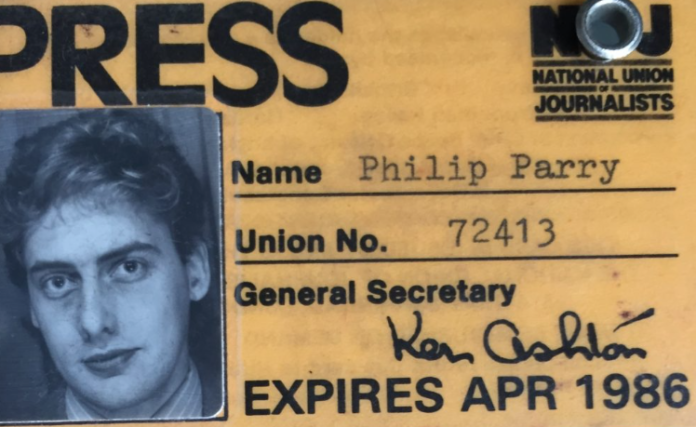- Up, up and away… - 6th February 2026
- Lucy in the sky behind bars - 5th February 2026
- Sorry is the hardest word… - 4th February 2026

During 23 years with the BBC, and a 41 year journalistic career (when he was trained to use clear and simple language, avoiding jargon), for our Editor, Welshman Phil Parry polls which show a political direction have always been central, and now comes news of the latest one appearing to reveal that the view of ordinary voters is at odds with that of governments in the west.
I have always thought the attitudes of ordinary people should be respected, even when they are different to the ones held by the great and good.
With this in mind I look with interest at the latest poll of voters in Syria, which seems to show a deep trust in the new regime there, which is COMPLETELY different to the official UK approach (Foreign policy is the prerogative of London, and is not a devolved area).

The survey, which polled 1,500 Syrians from across the country’s provinces and sectarian groups, found that 81 percent approve of the rule of Ahmed al-Sharaa, while only 22 per cent think that his past as an al-Qaeda leader should disqualify him from leadership.
Large numbers say they feel his new order is safer, freer and less sectarian than the previous regime of Bashar al-Assad, and some 70 per cent are optimistic about the overall direction of the country.
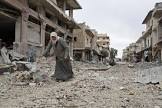
The happiest province is Idlib, Mr Sharaa’s erstwhile fief, where 99 of the 100 respondents express optimism.
Besides Damascus, the capital, Tartus, a religiously mixed province where jihadists killed large numbers of Alawites last month, is the saddest. Even there, though, 49 per cent said they were optimistic, whereas only 23 per cent expressed pessimism.
 The Economist states that these results are ‘positive’, but protests: “One big obstacle is that Western sanctions on Syria have not yet been lifted. Designed to isolate Mr Assad, they now hobble the new government’s attempts to reconnect Syria to the global economy. They prevent investment by foreign firms in reconstruction and limit Syria’s access to the global banking system, making it nearly impossible for the country to be paid for goods it exports. Syria has been forced to buy Russian oil carried on ships under American sanctions. Without enough foreign investment and export revenue, Mr Sharaa cannot begin to revive the country”.
The Economist states that these results are ‘positive’, but protests: “One big obstacle is that Western sanctions on Syria have not yet been lifted. Designed to isolate Mr Assad, they now hobble the new government’s attempts to reconnect Syria to the global economy. They prevent investment by foreign firms in reconstruction and limit Syria’s access to the global banking system, making it nearly impossible for the country to be paid for goods it exports. Syria has been forced to buy Russian oil carried on ships under American sanctions. Without enough foreign investment and export revenue, Mr Sharaa cannot begin to revive the country”.
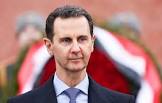
As The Economist makes clear, it seems the West has less trust in the perceptions of the people in Syria itself.
The UK Government appears to view things through the prism of the past, declaring on its website: “Due to the Asad regime’s atrocities against the Syrian people, the UK suspended all services of the British Embassy in Damascus and withdrew all diplomatic personnel from Syria in 2012”.


Even when polls ARE used (and the results trusted unlike the one in Syria), the firm declaration from it can be embarrassingly wide of the mark.
Around 17 voting-intention polls were conducted immediately before General Election (GE) day, and they suggested that Labour would enjoy an 18-percentage-point lead over the Conservatives.
In fact once the ballots had been counted, Labour’s share of the vote was just 10.3 points ahead of the Tories’. This was the biggest miss since the GE in 1992.
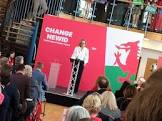
As the GE was described in the media with the words that it was “a staging post in the far longer trek towards the next Senedd election in 2026″, we are likely to see many more polls in the months ahead.
A poll in Wales a month before the election was reported in this way: “The Conservatives look set to lose all but one seat in Wales (they actually lost all of them) in the upcoming General Election, according to an exclusive ITV Cymru Wales poll.
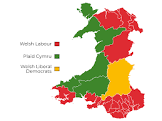
“The latest seat projections reveal Labour are heading for a landslide victory for seats in Wales, with Plaid Cymru on track to win two, perhaps three, seats in July (in fact they won FOUR).
The report added: “The Barn Cymru poll, conducted by YouGov, suggested that 45% of people in Wales would vote for Labour in the upcoming General Election, up three points from our previous poll in December (their vote share of 37 per cent, was in fact DOWN 3.9 points from last time)…”.

So it is obvious that when the views of voters ARE trusted, the sample might be so small, the results are totally wrong!
But for now those of people in Syria are being ignored by the politicians we elect, even though the sample could be much bigger!
Some of the political stories Phil has covered over the years, as he was gripped by the rare neurological condition Hereditary Spastic Paraplegia (HSP), have been released in a major book ‘A GOOD STORY’. Order it now!







